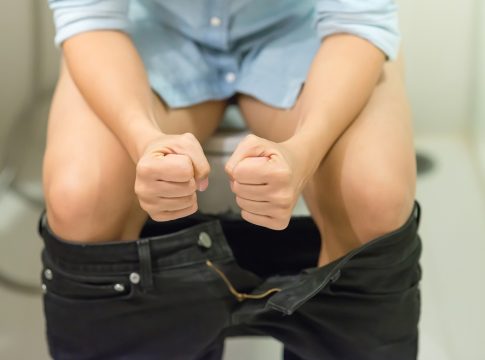Constipation is a common condition characterized by infrequent bowel movements. It can be caused by various factors, including diet, lifestyle habits, and underlying medical conditions. While dietary changes often play a significant role in treatment, a doctor’s evaluation can help determine the cause and recommend the most appropriate approach.
Dietary Changes for Constipation Relief
One of the most effective ways to combat constipation is by increasing your daily fiber intake. Aim for around 25-35 grams of fiber each day. Excellent sources of fiber include:
- Fruits: Berries, apples, pears, oranges
- Vegetables: Leafy greens, Brussels sprouts, broccoli, carrots
- Whole grains: Brown rice, quinoa, oatmeal, whole-wheat bread
- Beans and legumes: Lentils, chickpeas, black beans
- Nuts and seeds: Almonds, flaxseeds, chia seeds
Gradually increase your fiber intake to avoid bloating and gas. Pair your increased fiber intake with plenty of fluids, at least 6-8 glasses of water daily, to help soften stool and promote regularity.
Limit or avoid foods that are low in fiber, such as:
- Red meat
- Processed foods
- Cheese
- Ice cream
- Refined grains (white bread, white rice)
Lifestyle Modifications for a Regular Bowel Habit
In addition to dietary changes, several lifestyle practices can help regulate bowel movements and alleviate constipation:
- Regular exercise: Aim for at least 30 minutes of moderate-intensity exercise most days of the week. Physical activity stimulates the digestive system and helps move stool through your intestines.
- Scheduled bathroom breaks: Try to establish a regular time each day, ideally after breakfast, to sit on the toilet and attempt a bowel movement. Relax and allow yourself ample time (around 10-15 minutes) to respond to the urge.
- Respond to the urge to go: Don’t ignore or suppress the urge to have a bowel movement. Delaying can lead to harder stool and make elimination more difficult.
- Maintain proper posture: Elevate your knees slightly with a stool while sitting on the toilet. This position helps relax your puborectalis muscle, which aids in bowel movements.
- Avoid straining: Straining can lead to hemorrhoids and worsen constipation. If you’re unable to have a bowel movement after a reasonable amount of time, try again later.
When to Consider Laxatives
If dietary and lifestyle changes haven’t provided relief after several weeks, laxatives can be a temporary solution. However, it’s important to consult your doctor before using laxatives for an extended period. Different types of laxatives work in various ways:
- Bulk-forming laxatives: These, like psyllium (Metamucil), add fiber to the stool, making it softer and easier to pass.
- Lubricant laxatives: These, like mineral oil, coat the stool and lubricate the intestines, allowing for easier passage.
- Stimulant laxatives: These, like bisacodyl (Dulcolax), stimulate muscle contractions in the intestines to move stool through. Stimulant laxatives should be used cautiously and not for extended periods, as they can lead to dependence.
- Saline laxatives: These, like magnesium sulfate (Epsom salts), draw water into the intestines, softening stool.
It’s important to note that laxatives should not be a long-term solution for constipation. Overuse can disrupt the natural balance of electrolytes and minerals in your body and worsen constipation in the long run.
Enemas and Surgery: For Severe Cases
In rare and severe cases of constipation, an enema may be recommended. Enemas are inserted into the rectum and deliver fluids to stimulate bowel movements and evacuate stool. There are various types of enemas available over-the-counter, but some may require administration by a healthcare professional.
Surgery to remove part or all of the colon is an extremely rare last resort for treating chronic and severe constipation that has not responded to other treatments. This option will only be considered by a doctor after a thorough evaluation of the underlying cause.
Remember: If you experience constipation for more than a few weeks, or if you experience rectal bleeding, severe abdominal pain, or bloating, consult your doctor to determine the cause and receive appropriate treatment.
